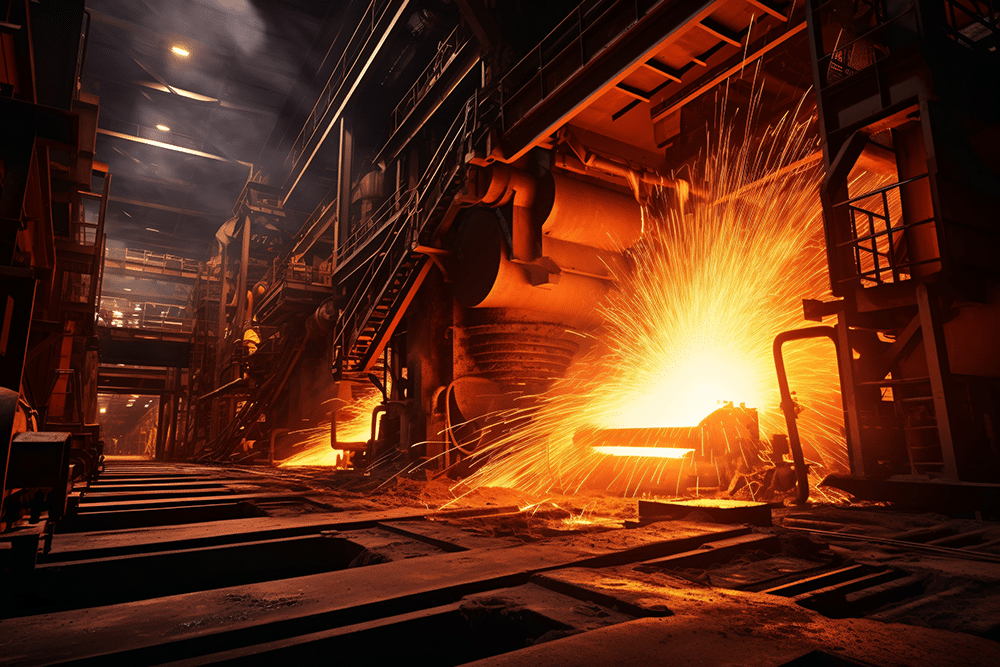Turkish longs and flats producer Habaş recently announced plans to build a downstream cold rolling and tinplate mill. The growing Turkish steel industry brand estimates that the plant will have an annual capacity of 900,000 metric tons. Current plans place the new plant on a greenfield site close to Habaş’ main production facilities at Aliağa. This sits roughly 50 kilometers north of the Western Turkish city of Izmir.
In a December 22 announcement, Italian equipment provider and contractor Danieli stated that commissioning of the site is due to start in late 2024. Meanwhile, Habaş says the new plant will produce about 250,000 metric tons per year of single- and double-reduction tin plate. Danieli also noted that additional capacity will include another 150,000 metric tons of thin, continuous annealed cold-rolled coil with commercial quality, drawing quality, and HSS grades.
MetalMiner Insights covers price points, correlation charts and price forecasting for a full suite of industrial and precious metals. See our full metals catalog.
Cutting-Edge Cold Rolling Technology for Tinplate
Single-and double-reduction refers to the number of cold rolling steps that feedstock for tinplate undergoes. In single-reduction’s case, cold rolling occurs only once. Therefore, the resulting tinplate has a smoother surface. This makes it idea for applications requiring a high-quality finish. However, it is not as ductile as double-reduction tinplate, which undergoes cold rolling twice. Specifically, the coil undergoes annealing after the first rolling and then undergoes rolling a second time. Danieli noted that the minimum gauge on tinplate and cold rolled coil will be 0.2mm

Tinplate’s main application is in the production of packaging for foodstuffs and beverages. This is mainly due to the metal’s anti-corrosive properties. In addition to tinplate, Danieli added that the new site will also produce 500,000 metric tons per year of semi-finished products, such as electrolytically-cleaned, full-hard coils. “The new complex comprises four process areas: electrolytic cleaning, cold rolling and tempering, electrolytic tinning, and continuous annealing,” the Italian supplier said of the new equipment. “The cleaning section will ensure a completely enclosed environment, preventing any emission of fumes or liquids.”
Tin, steel and other metal industries are constantly changing! See why technical analysis is a superior forecasting methodology over fundamental analysis and why it matters for your metal buy.
Habaş Expects the Factory to Support Wider Turkish Metal Industry
Habaş can produce up to 4.5 million metric tons per year of crude steel via two 90-metric ton electric arc furnaces, from which it originally produced billets in 100x100mm to 160x160mm dimensions via a six-strand casting machine. The plant also rolls 1.9 million metric tons of rebar and 500,000 metric tons of wire rod annually. According to information on Habaş’ website, the rebar and wire rod come in 8-50mm and 5.5-19mm diameters, respectively.

After exclusively producing longs products, Habaş began to include flats in its product assortment at the start of the last decade. In 2013, the company commissioned a continuous slab casting machine with a 2.5 million metric ton capacity,to cast the semi-finished product in 200-225mm gauges. It also added a hot strip mill with the same capacity to manufacture flat rolled steel in 1.2-25.4mm gauges. Applications for that product include the shipbuilding sector as well as high-pressure tanks. In addition, Habaş produces spiral-welded pipe with 400-3,048mm exterior diameters and 4-20mm wall thicknesses.
One source told MetalMiner that the company recently upgraded the hot strip mill, and expects it to achieve its new annual capacity of 4.5 million metric tons in 2024. The source added that any external slabs the company acquires are likely from Russian producer Novolipetsk Steel.
Crush the competition by getting access to weekly exclusive metal market intel. Opt into MetalMiner’s free weekly newsletter.




